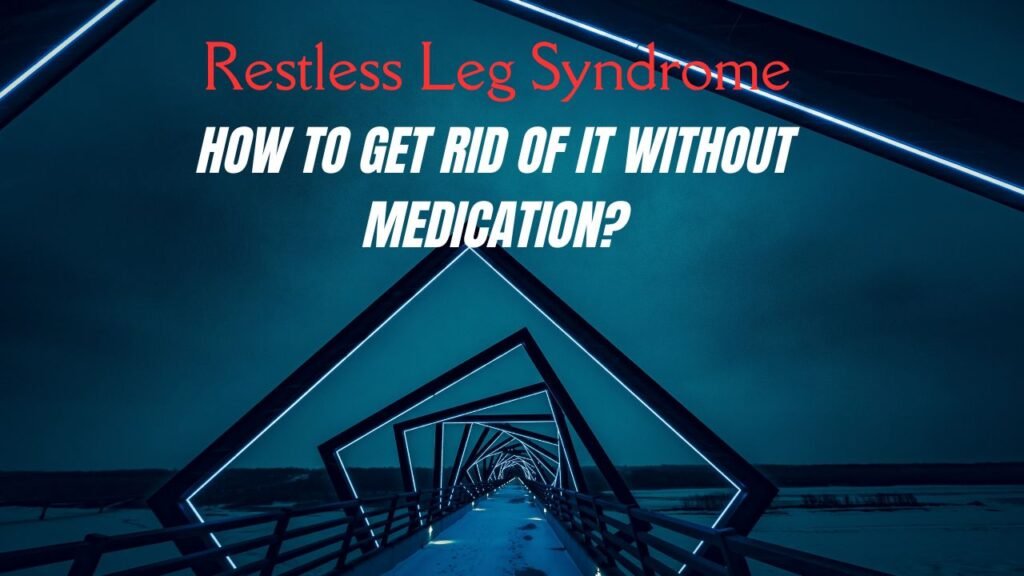Table of Contents
Dreams and Their Link to Sleep Disorders
Dreams and Their Link to Sleep Disorders: For generations, people have been captivated by dreams because they provide insights into our subconscious, serve as inspiration, and occasionally present mysterious riddles.
They combine elements of our everyday life with the fantastical, taking us to both familiar and unfamiliar worlds.
Dreams, however, are not just nocturnal tales. They can reveal the condition of our mental and physical well-being and have strong ties to the activities of our brains when we sleep.
Their connection to sleep problems and the crucial part REM (Rapid Eye Movement) sleep plays in influencing our dream experiences are especially fascinating.
The Role of REM Sleep in Dreaming
REM sleep is one of the five stages of the sleep cycle, standing apart as the phase most closely associated with vivid dreaming.
Unlike the deep, restorative phases of non-REM sleep, REM sleep is characterized by intense brain activity, rapid eye movements under closed eyelids, and a near-complete paralysis of the body’s voluntary muscles.
The ideal conditions for dreams to thrive are created by this fusion of physical stillness and cerebral energy.
The limbic system of the brain, which controls emotions, memories, and behaviour, becomes extremely active during REM sleep.
Because of this, dreams frequently feel emotionally charged and contain aspects of our previous worries or experiences. The prefrontal cortex, which controls reasoning and logic, also becomes less active at the same time.
This loss of control over reasoning explains why dreams might seem illogical or strange but still have a strong sense of realism.
REM sleep is essential for cognitive processes including memory consolidation, emotional control, and problem-solving; it is not merely for dreaming.
Disruptions in this phase, however, might result in particular sleep disorders that impact both the type of dreams and the quality of sleep.
REM Behavior Disorder: When Dreams Break Free

Dreams and Their Link to Sleep Disorders: One of the most striking disorders linked to REM sleep is REM Behavior Disorder (RBD). In a typical REM sleep state, the body enters a temporary paralysis to prevent acting out dreams.
The ideal conditions for dreams to thrive are created by this fusion of physical stillness and cerebral energy.
The limbic system of the brain, which controls emotions, memories, and behaviour, becomes extremely active during REM sleep.
Because of this, dreams frequently feel emotionally charged and contain aspects of our previous worries or experiences. The prefrontal cortex, which controls reasoning and logic, also becomes less active at the same time.
This loss of control over reasoning explains why dreams might seem illogical or strange but still have a strong sense of realism.
REM sleep is essential for cognitive processes including memory consolidation, emotional control, and problem-solving; it is not merely for dreaming.
Disruptions in this phase, however, might result in particular sleep disorders that impact both the type of dreams and the quality of sleep.
The Emotional Weight of Recurring Dreams
Recurring dreams have a special power to make an impact that lasts, but most dreams are brief and gone when one wakes up.
Over time, these dreams recur frequently at stressful times or major life transitions, revisiting recurring themes, situations, or feelings. The fact that they are repeated raises the possibility that they have a deeper psychological function.
Unresolved feelings or experiences are often linked to recurring dreams.
Dreams about falling, for example, may represent a lack of control, while dreams about being hunted may represent worry or avoidance in real life.
Recurring dreams are harder to ignore since they are typically more intense and emotional than one-time nightmares.
Recurring dreams are significant because they may indicate underlying psychological issues.
Recurring dreams are significant because they may indicate underlying psychological issues. They serve as the brain’s method of resolving unresolved feelings or problems.
For instance, even years after finishing school, a person who struggles with self-doubt may have recurring dreams about failing an exam. These dreams serve as a mirror, revealing internal struggles that might need to be resolved.
Dreams and Sleep Disorders: A Complex Relationship

Dreams do not exist in isolation; they are deeply intertwined with the overall quality and structure of sleep.
Disruptions in the sleep cycle, whether due to insomnia, sleep apnea, or anxiety, can alter the nature and frequency of dreams.
For instance, individuals with insomnia often report an increase in vivid and distressing dreams, likely due to fragmented sleep that amplifies the brain’s activity during REM periods.
Similarly, sleep apnea, a condition characterized by repeated interruptions in breathing during sleep can affect dream recall.
The frequent awakenings caused by sleep apnea can disrupt the continuity of REM sleep, leading to fragmented and less coherent dreams. Interestingly, individuals who begin treatment for sleep apnea, such as using a CPAP machine, often report more vivid dreams as their REM sleep normalizes.
Nightmares, a specific type of disturbing dream, are also closely linked to certain sleep disorders and mental health conditions.
Chronic nightmares can lead to sleep anxiety, where individuals fear going to sleep due to the anticipation of unpleasant dreams. This creates a vicious cycle, as poor sleep quality exacerbates the frequency of nightmares.
The Science of Dream Recall
Dreams and Their Link to Sleep Disorders: Not everyone remembers their dreams, and the ability to recall them varies widely among individuals. Factors like stress, sleep quality, and even personality traits can influence dream recall.
Interestingly, people who wake up during or immediately after REM sleep are more likely to remember their dreams in detail.
This is because the brain transitions quickly from the dream state to wakefulness, preserving the memory of the dream.
However, poor sleep hygiene or disruptions in the sleep cycle can impair dream recall. Chronic stress and anxiety can also affect how vividly or frequently dreams are remembered.
On the other hand, engaging in practices like maintaining a dream journal or setting an intention to remember dreams can improve recall over time.
Managing Dream-Related Sleep Issues
Dreams can actively affect the quality of sleep and general well-being; they are not merely a passive result of sleep.
Addressing the underlying cause becomes crucial when dreams become upsetting or are connected to a sleep condition. The management of dream-related problems is significantly influenced by sleep hygiene.
Establishing a regular sleep schedule, abstaining from stimulants like caffeine prior to bed, and cultivating a peaceful nighttime ritual can enhance the quality of sleep overall and lessen the likelihood of nightmares or disturbing dreams.
Therapies such as imagery rehearsal therapy (IRT) have showed promise for people with persistent nightmares.
IRT entails changing the plot of a reoccurring nightmare into a less upsetting one while the person is awake. This technique can eventually lessen the nightmare’s occurrence and emotional impact.
Seeking medical attention is essential when dream-related problems are connected to diseases like sleep apnoea or RBD.
Medication for RBD or CPAP devices for sleep apnoea are two treatments that can help return sleep patterns to normal and enhance dream quality.
The Fascination with Dreams: A Window into the Mind

Dreams and Their Link to Sleep Disorders: As a window into the intricacies of the human mind, dreams continue to enthral scholars, psychologists, and laypeople alike.
Even though they are frequently elusive and mysterious, their link to sleep disorders emphasises how important they are to comprehending and enhancing sleep health.
Dreams serve as both a reflection of our inner world and a potential indicator of our physical and mental well-being.
Whether it is the vivid imagery of REM sleep dreams, the emotional weight of recurring themes, or the disruptive effects of disorders like RBD, dreams remind us of the intricate relationship between the body, mind, and sleep.
By exploring this connection, we can better understand not only our nightly journeys but also the broader landscape of our health and well-being.


